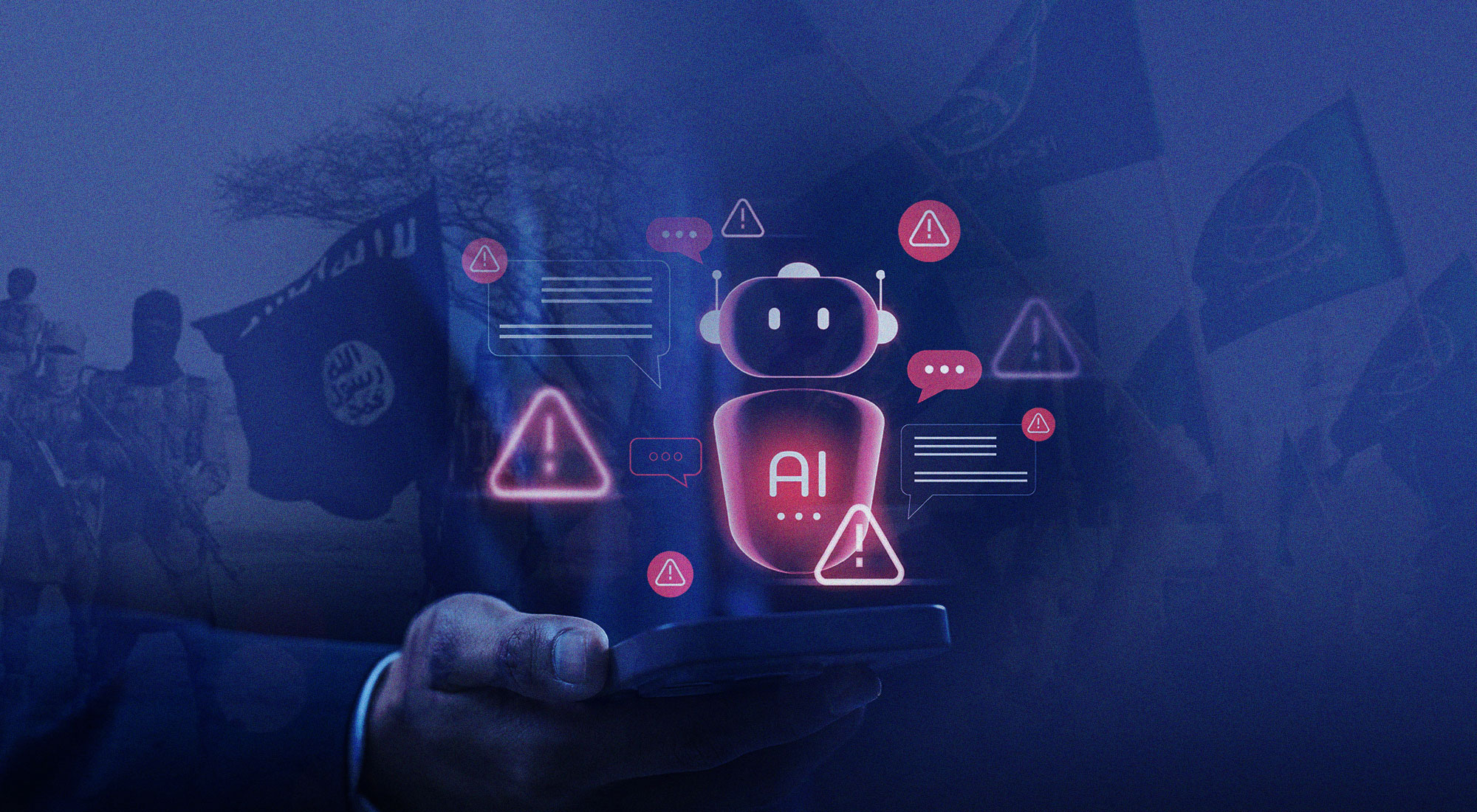In an era marked by rapid technological advancement, the integration of Artificial Intelligence (AI) into various sectors has sparked transformative changes, particularly within the realm of diplomacy. As global interconnectivity deepens and the complexity of international relations escalates, traditional diplomatic practices are being augmented by AI-driven tools that enhance communication, data analysis, and strategy formulation. This insight seeks to investigate the multifaceted role of AI in modern diplomacy, examining how its current applications streamline diplomatic processes, foster more informed decision-making, and ultimately contribute to more effective conflict resolution strategies. The benefits of AI, such as increased efficiency, data-driven insights, and the potential for predictive analytics, present significant advantages for diplomats navigating intricate geopolitical landscapes.
However, the incorporation of AI is not without its challenges; diplomats face hurdles related to technology adoption, ethical dilemmas, and the potential for unintended consequences in sensitive negotiation contexts. This insight will also explore the profound impact of AI on global conflict resolution strategies, highlighting its capacity to influence negotiation dynamics, improve situational awareness, and enhance the decision-making process during crises. As we delve into these themes, we will also confront the ethical considerations that arise from deploying AI in high-stakes environments, questioning the implications of algorithmic biases, accountability, and the human oversight necessary to ensure that technology serves as a tool for peace rather than a catalyst for conflict.
The Role of Artificial Intelligence in Modern Diplomacy
How is AI currently being integrated into diplomatic practices?
The integration of AI into diplomatic practices is transforming traditional diplomacy into a more technologically advanced field. Many foreign ministries are adopting AI tools to streamline administrative tasks, enabling diplomats to focus on strategy and ethical considerations. AI’s ability to process vast amounts of data with speed and accuracy makes it a valuable asset, yet its role in diplomacy remains a topic of debate due to the sensitivity of diplomatic discussions. The adoption of AI also varies across countries, leading to inconsistent outcomes and highlighting the need for a more standardized approach. While concerns persist about replacing human roles with automated decision-making, AI’s potential to enhance negotiation and dialogue remains significant. However, the absence of universally accepted norms and regulations for AI raises ethical concerns that need urgent attention to ensure accountable and transparent diplomatic practices.[1] As AI continues to influence global power dynamics, it becomes crucial for policymakers to establish international legal frameworks that address these ethical dilemmas, fostering a responsible and globally cooperative approach to AI in diplomacy.[2]
What are the key benefits of using AI in diplomacy?
The integration of AI into diplomatic practices offers numerous advantages that significantly enhance the efficacy and efficiency of diplomatic operations. One key benefit is the capability of AI to act as an automated data analyst, thereby freeing up diplomats’ time to focus on other essential functions.[3] This is particularly crucial as the complexity and volume of diplomatic tasks continue to escalate. Furthermore, AI facilitates real-time information gathering and analysis, enabling swift actions in crisis management scenarios such as natural disasters and political unrest.[4] By providing real-time data, diplomats are better equipped to make informed decisions that can significantly mitigate the impact of such crises. Additionally, AI’s role in simultaneous translation services at international meetings is an innovative solution that supports global diplomacy by breaking down language barriers, thus fostering more effective communication and collaboration.[5] These advancements not only streamline diplomatic processes but also enhance the capacity for international cooperation, ultimately promoting global peace and stability.[6] As AI continues to evolve, its integration into diplomatic functions is pivotal, necessitating ongoing investment in AI technologies and training programs to ensure diplomats are well-equipped to leverage these tools effectively.[7]
What challenges do diplomats face when implementing AI technologies?
As diplomats increasingly turn to AI technologies to streamline their operations, they encounter numerous challenges that underscore the complexity of such implementations. One of the foremost challenges is the potential for inaccuracies in translation, which can lead to significant diplomatic miscommunications and heightened tensions, as evidenced by past events like the 2021 Anchorage meetings.[8] The intricacy of working with over 6,000 languages worldwide further complicates the integration of AI-assisted translation tools, as these technologies must accurately capture and convey subtle linguistic nuances across diverse languages.[9] Even with advancements in real-time translation, there are inherent limitations in AI that may not fully resolve issues related to transcription and translation inaccuracies, which frequently result in misunderstandings in international relations.[10] Furthermore, the ethical and practical challenges of implementing AI, such as negotiating international agreements for AI diplomacy standards, highlight the need for a robust framework to address these issues effectively.[11] As AI continues to evolve, it is imperative for diplomats to address these challenges through improved data standards, ethical considerations, and international cooperation, ensuring that AI technologies enhance rather than hinder diplomatic efforts.
Impact of AI on Global Conflict Resolution Strategies
In what ways can AI influence conflict resolution strategies?
Artificial Intelligence (AI) holds significant potential to revolutionize conflict resolution strategies by enhancing decision-making and facilitating communication. By leveraging AI’s analytical capabilities, vast amounts of data can be processed to identify patterns in conflicts, allowing for more tailored and effective strategies.[12] This is particularly beneficial in complex disputes where traditional methods may fall short. Moreover, AI-driven tools can enhance communication between conflicting parties by providing real-time translations and clarifications, thus reducing misunderstandings that could otherwise exacerbate conflicts.[13] This capability is crucial in multicultural or international disputes where language barriers are common. Additionally, AI’s ability to predict outcomes based on historical data can assist mediators in proposing solutions with a higher likelihood of success, thus increasing the efficiency and satisfaction of the resolution process.[14] These advancements underscore the need for integrating AI into conflict resolution frameworks, offering a pathway to more personalized and context-aware solutions that adapt to the evolving dynamics of disputes.[15] As AI continues to develop, its role in conflict resolution is expected to grow, necessitating strategic approaches to harness its full potential in promoting peace and understanding.
How does AI improve the decision-making process in conflict scenarios?
In conflict scenarios, the incorporation of AI significantly enhances the decision-making process by leveraging intelligent decision support systems (IDSS) to offer expert advice on complex issues such as resource management.[16] These systems draw inspiration from AI applications in gaming, which have been successful in providing optimal advice and best practice solutions, although challenges remain in replicating the nuanced expertise of human decision-makers.[17] The research and development of AI-related systems in gaming have further contributed to the improvement of strategic recommendations and actions during conflicts, demonstrating the potential of AI to support and enhance human decision-making capabilities.[18] AI’s ability to streamline the decision-making process is bolstered by its proficiency in data interpretation, which enhances the structural and functional organization of command-and-control modules. This capability allows for more effective management and execution of operations in conflict environments, offering a distinct advantage in rapidly evolving scenarios.[19] Moreover, by integrating AI with human experience and intuition, the decision-making process becomes more robust and adaptable, allowing for rapid incorporation into operational plans and orders.[20] As AI continues to evolve, it is essential to focus on the development of systems that can effectively combine AI’s analytical strengths with the subjective insights of human expertise to ensure that decisions are not only swift but also strategically sound.
What ethical considerations arise from using AI in global conflict resolution?
The integration of AI in global conflict resolution requires careful consideration of ethical implications to ensure it serves as a force for good rather than exacerbating existing disparities. One significant concern is the potential for AI to inherently carry biases if it relies heavily on historical data, which may not accurately represent diverse perspectives or evolving geopolitical landscapes.[21] This necessitates a balanced approach that combines AI capabilities with human judgment to ensure fair and equitable outcomes in conflict resolution endeavors.[22] Human oversight, particularly through the Human-in-the-Loop (HITL) approach, is crucial for mitigating biases and ensuring that AI systems remain accountable and transparent.[23] Furthermore, the legal community plays a pivotal role in safeguarding that technological advancements in AI contribute positively to conflict resolution, thereby enhancing justice rather than undermining it.[24] Overall, while AI has the potential to streamline and enhance diplomatic efforts, its implementation must be approached with caution, ensuring that ethical considerations are prioritized to maintain the integrity of global conflict resolution processes.
Conclusion
The integration of Artificial Intelligence (AI) into diplomacy represents a pivotal shift in how diplomatic operations are conducted, with profound implications for global conflict resolution strategies. AI enhances the efficiency and effectiveness of foreign ministries, enabling diplomats to focus on complex issues rather than administrative tasks. This shift not only streamlines operations but also suggests a potential reallocation of human resources within diplomatic institutions, which could lead to more strategic engagement in international relations. However, the uneven adoption of AI technologies among countries raises critical concerns about equity and standardization in diplomatic practices. The lack of a unified approach could exacerbate existing power imbalances, as nations with advanced AI capabilities may dominate diplomatic negotiations, inadvertently sidelining those with less technological infrastructure.
Furthermore, while AI’s capabilities in data analysis and real-time information gathering are invaluable for crisis management, the ethical implications of its use cannot be overlooked. The risk of biases embedded within AI systems may lead to flawed decision-making processes and undermine the fairness of diplomatic resolutions. As such, it is imperative that international frameworks are established to regulate AI applications in diplomacy, ensuring they are used ethically and transparently. The role of human judgment remains crucial; AI should be viewed as a tool that complements diplomatic expertise rather than replaces it. Future research should delve deeper into the complexities of AI integration in diplomacy, examining case studies that highlight both successful implementations and potential failures. Additionally, exploring the long-term impacts of AI on diplomatic relationships and global power structures will be essential for understanding how these technologies can be harnessed for positive change. Ultimately, while the promise of AI in enhancing diplomatic practices and conflict resolution is clear, a cautious approach that prioritizes ethical considerations and inclusivity will be vital in shaping a just and equitable future in international relations.
[1] Belosludtsev, А., Dziuba, E. Generative Artificial Intelligence in the System of International Relations: Risks, Opportunities, and Regulations. (n.d.) Retrieved March 15, 2025, from link.springer.com/chapter/10.1007/978-3-031-70886-2_16
[2] Ibid
[3] Sevin, E., Eken, M. Yet another turn? priotising the needs of diplomacy over the capabilities of generative AI. (n.d.) Retrieved March 15, 2025, from link.springer.com/article/10.1057/s41254-024-00325-w
[4] Rauf, A., Iqbal, S. O1MWodaulQ. (n.d.) Retrieved March 15, 2025, from humapub.com/admin/alljournals/gfpr/papers/O1MWodaulQ.pdf
[5] Pokhriyal, N., Koebe, T. AI-assisted diplomatic decision-making during crises—Challenges and opportunities. (n.d.) Retrieved March 15, 2025, from www.frontiersin.org/articles/10.3389/fdata.2023.1183313/full
[6] Rauf, A., Iqbal, S. O1MWodaulQ. (n.d.) Retrieved March 15, 2025, from humapub.com/admin/alljournals/gfpr/papers/O1MWodaulQ.pdf
[7] Mungai, R., Onyango, E. 15pdf-mungai-onyango-integration-of-artificial-intelligence-on-diplomatic-practice-in-kenya-2000-2024. (n.d.) Retrieved March 15, 2025, from kenyasocialscienceforum.wordpress.com
[8] Buch, A., Eagleman, D., Grosenick, L. Science & Diplomacy. (n.d.) Retrieved March 15, 2025, from www.sciencediplomacy.org
[9] Ibid
[10] Ibid
[11] Ibid
[12] Candeias, T. Artificial Intelligence’s Role in Enhancing Conflict Resolution within the Online Dispute Resolution (ODR) System. (n.d.) Retrieved March 15, 2025, from www.cambridge.org
[13] Ibid
[14] Ibid
[15] Carneiro, D., Gomes, M., Novais, P., Neves, J. Developing Dynamic Conflict Resolution Models Based on the Interpretation of Personal Conflict Styles. (n.d.) Retrieved March 15, 2025, from link.springer.com/chapter/10.1007/978-3-642-24769-9_4
[16] Rumsamrong, M. The development of an intelligent decision support system in a scaled-down simulation environment: A Conflict Resolution Intelligent System for the Informed Strategy Expert (CRISIS-Expert). (n.d.) Retrieved March 15, 2025, from acquire.cqu.edu.au
[17] Ibid
[18] Ibid
[19] Popa, C. CEEOL – Article Detail. (n.d.) Retrieved March 15, 2025, from www.ceeol.com/search/article-detail?id=1032648
[20] Ibid
[21] Zafar, A. Balancing the scale: navigating ethical and practical challenges of artificial intelligence (AI) integration in legal practices. (n.d.) Retrieved March 15, 2025, from link.springer.com/article/10.1007/s44163-024-00121-8
[22] Ibid
[23] Ibid
[24] Ibid







